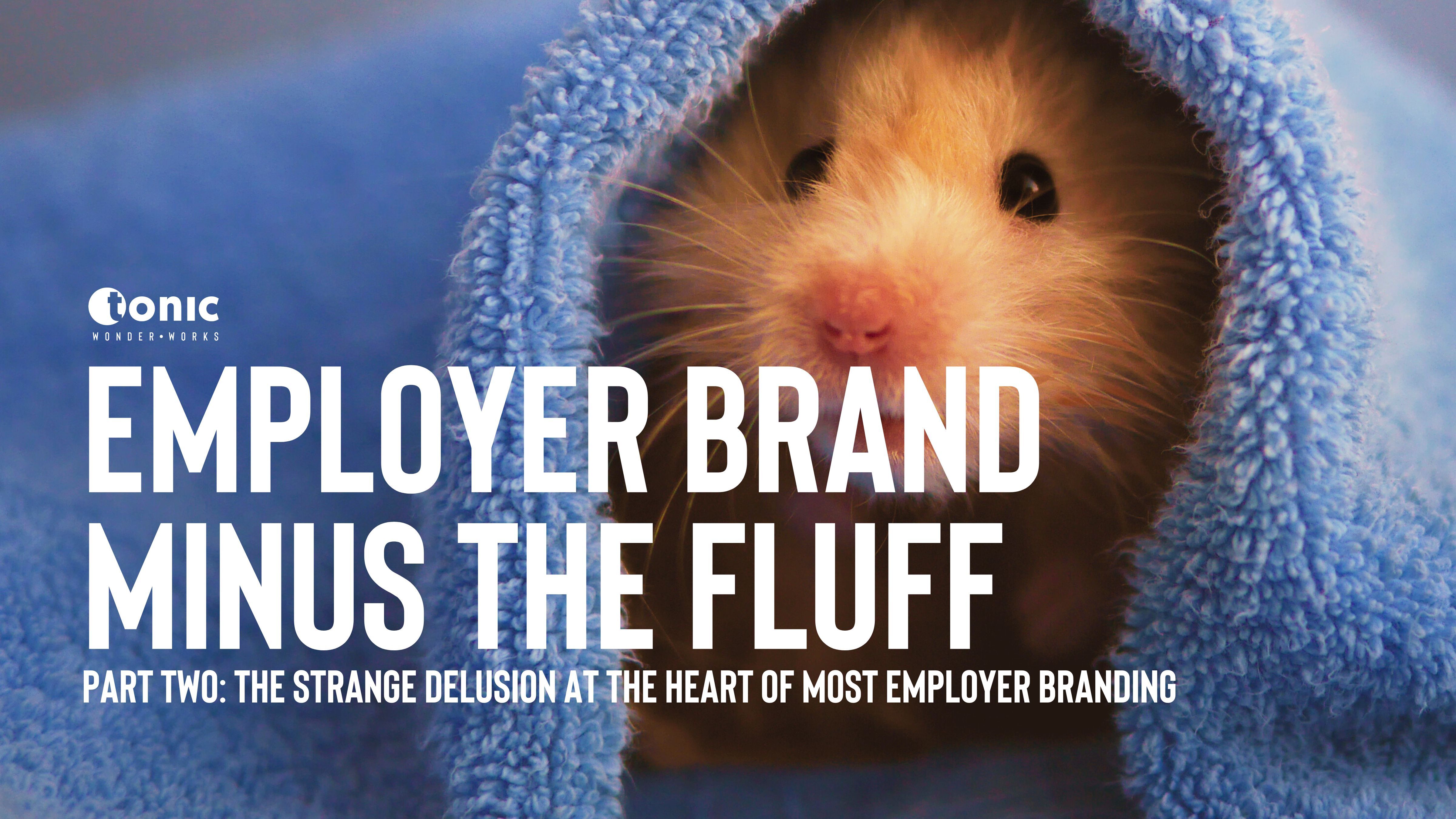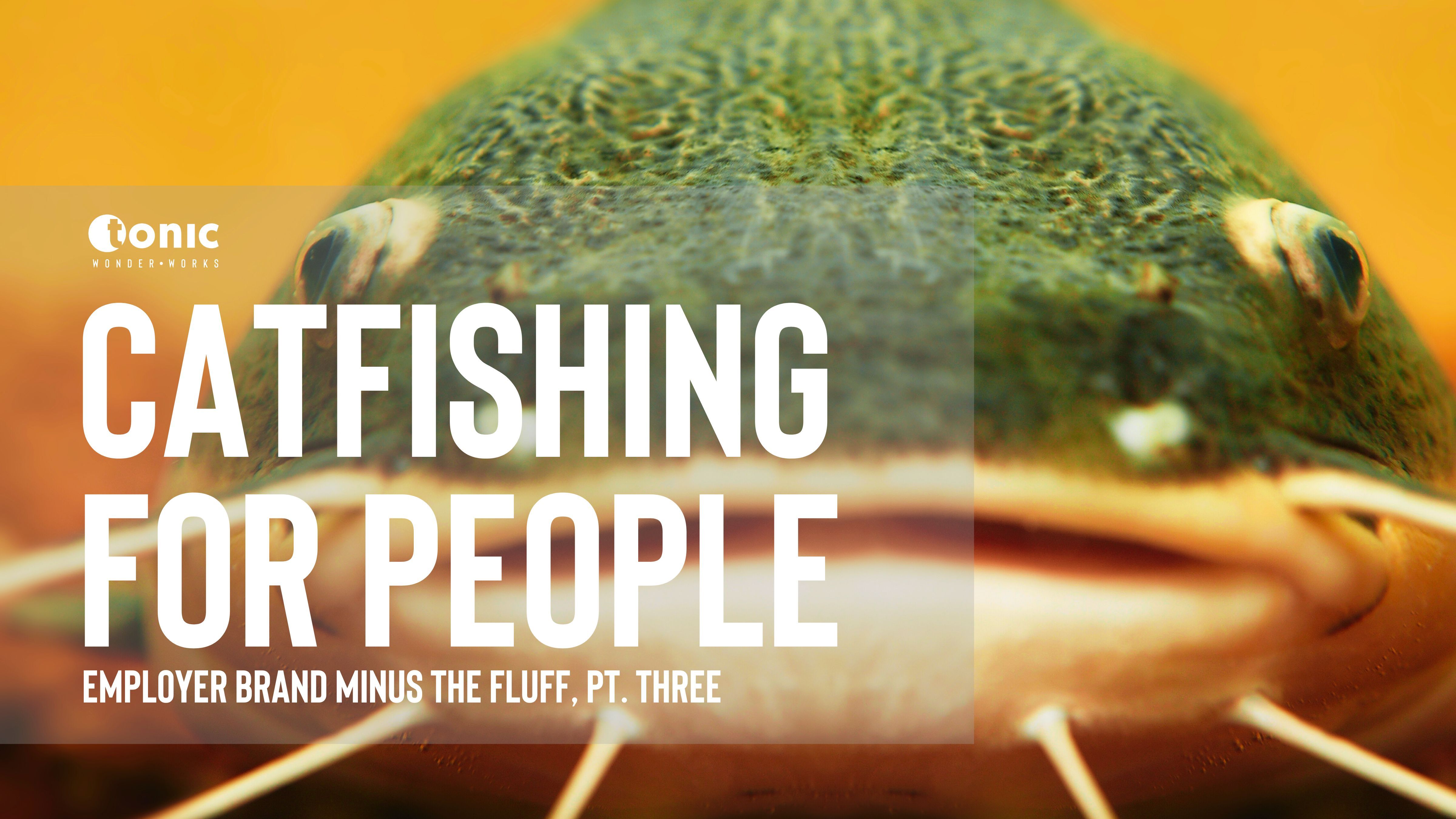There’s a strange delusion at the heart of most employer branding:
The idea that if you write something vague-but-positive, people will believe it.
“We empower people to do their best work.”
“We’re building a culture of growth, collaboration, and purpose.”
Well. That’s lovely.
But so is reading your own horoscope.
It feels accurate, mainly because it says nothing specific enough to disprove.
Branding that tells the truth, and the whole truth
What we forget is this:
The moment someone reads your EVP, they start forming expectations.
And the second they walk through the door, they start looking for the gaps.
It’s not the lofty promises that stick.
It’s the mismatch between what was said and what was experienced.
Which is why the most powerful EVPs aren’t slogans.
They’re contracts.
Not legal ones, obviously. No one signs a form.
But psychological ones. The most powerful kind.
Here’s what we offer.
Here’s what we ask in return.
Here’s what we are.
And here’s what we’re not.
That last part is where most businesses get nervous.
They don’t want to say anything that might turn people off.
So they end up with something that isn't quite the truth.
Three big lies most EVPs tell, often unintentionally
Lie number 1: Everyone will love working here
They won’t. And that’s fine. Great brands repel. Patagonia isn’t for fast-fashion fans. Goldman Sachs isn’t for people who want 4-day weeks. A good EVP helps the wrong people opt out early. That’s not exclusion. That’s efficiency.
Lie number 2: We offer everything
You don’t. You can’t. And again, that’s fine. A meaningful brand involves trade-offs. You want autonomy? That probably comes with pressure. You want freedom? Expect ambiguity. If you’re not honest about the downsides, people invent their own.
Lie number 3: Our values guide everything
Do they? Or do they just sit in a mural above the beanbags in the breakout space? If your EVP promises values, make sure those values show up in how you hire, promote, fire, and reward. If not, the whole thing collapses under its own weight.
The behavioural trick nobody uses
In behavioural science, there’s a principle called “loss aversion.”
People are far more motivated to avoid pain than to chase pleasure.
In branding terms: knowing what you won’t get is often more persuasive than what you will.
It’s why no one believes “work-life balance” anymore unless you define it.
It’s why people trust brands with personality, even if they’re a bit awkward.
A vague EVP tries to impress.
A sharp EVP tells the truth, and lets people make their own minds up.
And when people decide for themselves, they tend to commit more deeply.
They’re not chasing a dream. They’re accepting a deal.
That’s the whole point.
It’s pattern recognition.
Here’s what most businesses miss:
An EVP isn’t a campaign. It’s a pattern.
It’s not what you say, it’s what consistently happens over time.
If you say you value autonomy, but everyone has to get sign-off for ordering a pen, the EVP’s dead.
If you say you reward initiative, but promotion only happens by tenure, no one buys it.
If you say you’re innovative but run performance reviews off an Excel template from 2004, the brand falls apart on contact.
That’s why EVP is so much more than messaging.
It’s about giving people a realistic map of how to succeed here.
And like any good map, it needs two things:
Landmarks: What to aim for
Boundaries: Where not to wander
Anything else is just marketing wallpaper.
If no one disagrees with your EVP, it’s probably useless
A good EVP should make some people say:
“That sounds brilliant, sign me up.”
And others say:
“Absolutely not for me.”
That’s not a branding problem.
That’s a feature.
Because trying to be for everyone means you’re not really for anyone.
And in employer branding, indifference is far more dangerous than rejection.
The EVP is not a tagline. It’s a contract.
If you’re not brave enough to put the terms in writing, don’t be surprised when no one sticks around to read the fine print.





